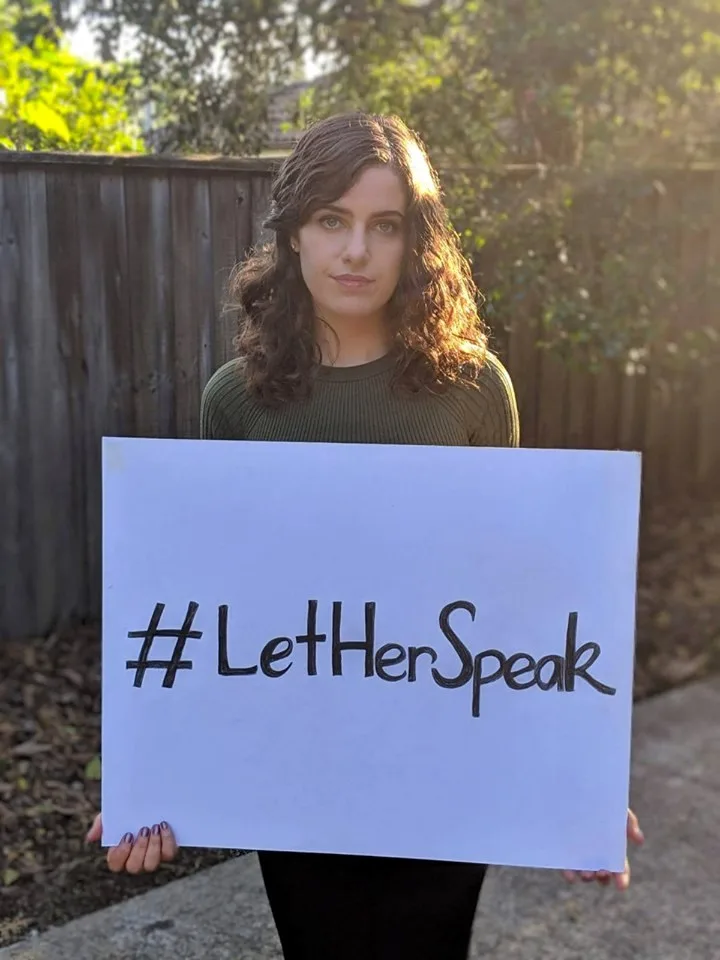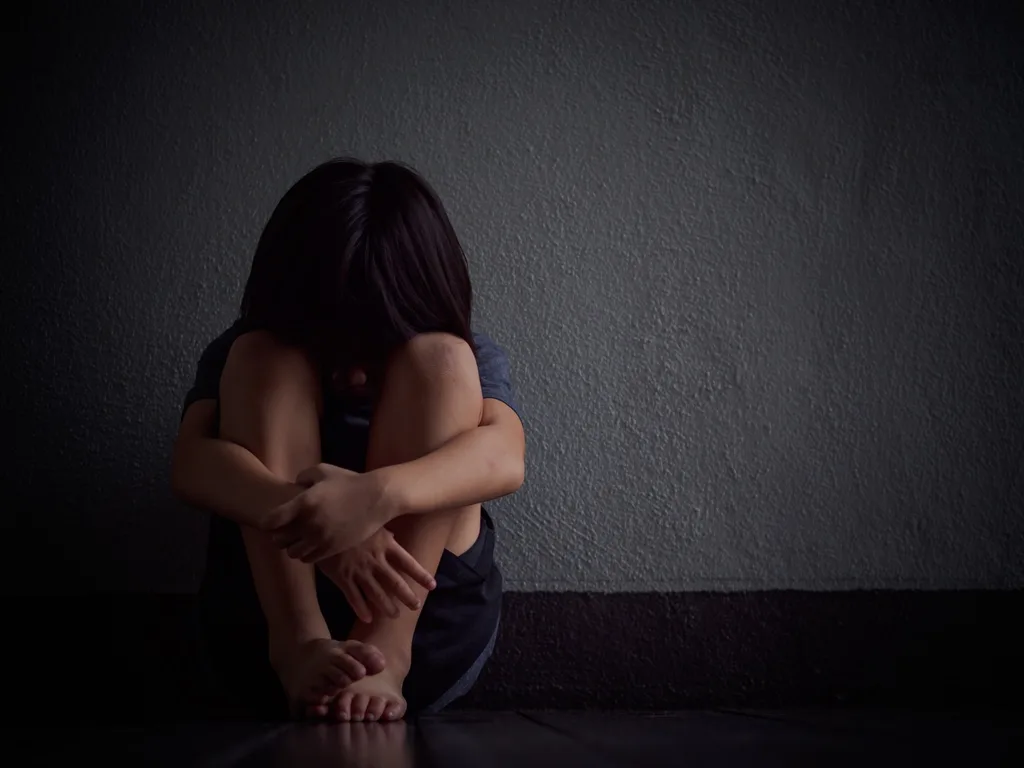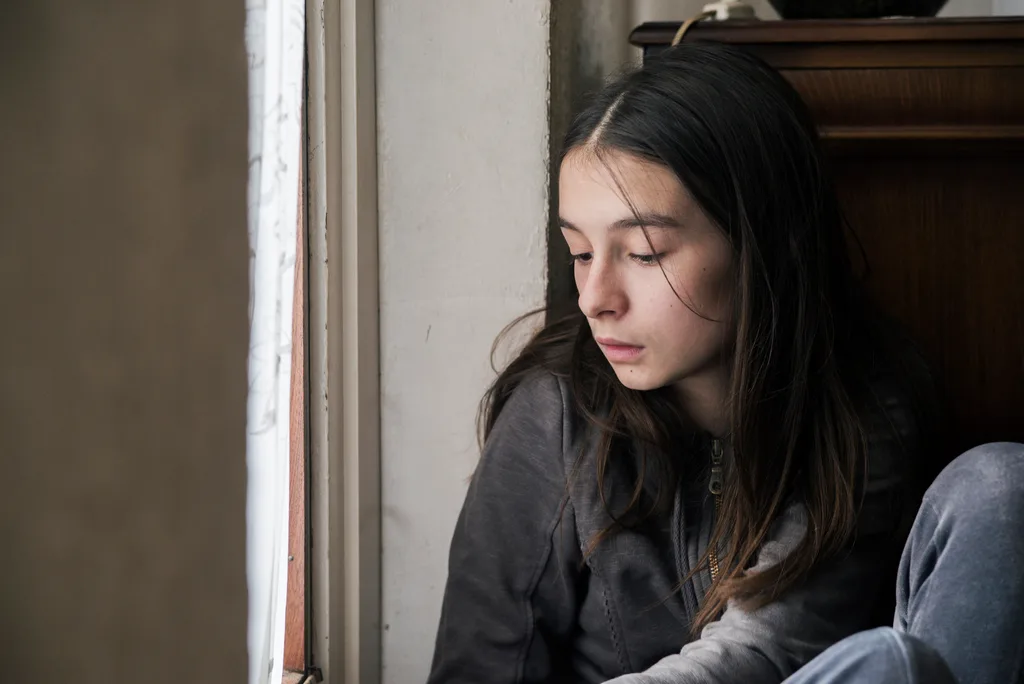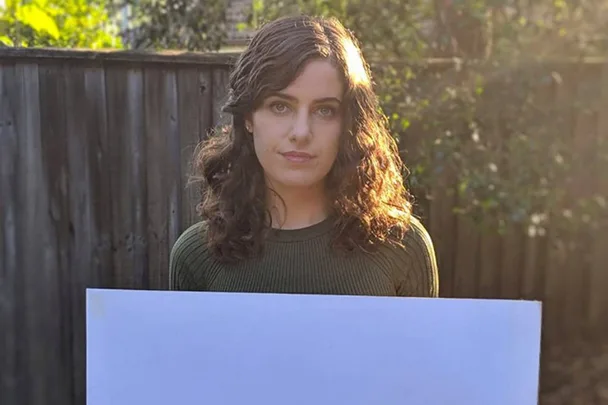The 28th of October marks the tenth anniversary of Blue Knot Day, established by the Blue Knot Foundation to raise awareness of the more than five million adult survivors of complex trauma. This year’s theme was: untangle the knot of complex trauma.
Blue Knot Foundation President Dr Cathy Kezelman AM said Blue Knot Day was about uniting Australians to help untangle the knot and complexities of trauma and abuse to support the recovery, resilience and empowerment of survivors.
“Over 5 million adults in this country have experiences of complex trauma, which is repeated ongoing interpersonal trauma and abuse, often from childhood, as an adult, or both,” Dr Kezelman said. “This Blue Knot Day marks the 10th anniversary of the Blue Knot Foundation delivering awareness, support and practitioner guidelines to help address the impacts of complex trauma on survivors.
marie claire spoke to two survivors of complex trauma, to get a better understanding of the ongoing pain, recovery and

Scarlett, 25
Scarlett ended up homeless at a young age, where she experienced sexual and emotional abuse. This complex trauma shaped her adulthood. However, with support from the Blue Knot Foundation – Australia’s National Centre of Excellence for Complex Trauma – she has been able to process the trauma and start recovering. Scarlett now works at the University of Sydney as a survivor researcher, focused on dissociative disorders and volunteers at anti-abuse organisations.
What, in general terms, did you experience in your past that has contributed to complex trauma?
I grew up with child abuse and neglect and domestic violence. I was kicked out of home in high school and sexually assaulted by four male peers a week before my HSC. This set me up for years of re-traumatisation by my school administration, the police and court systems, the public housing system, Victims Services, Centrelink, disability services, university welfare services, and the psychiatric system.
How did this experience/s impact on your life? What sorts of difficulties did this cause for you emotionally, in your body and reactions and how did you try and cope?
The chronic trauma I experienced in childhood has defined my life—to insist otherwise is to deny the gravity of what I’ve been through and does nothing to facilitate healing. Only by recognising and learning about the way trauma has shaped my brain, nervous system, sense of self, and patterns of relating to others have I been able to begin to rewire and reparent myself. Everyone’s nervous system, sense of self, and relationship patterns are structured by their childhoods, but we only hear about it when it goes wrong (and even then, not enough people are making this connection).
I have suffered nightmares, flashbacks, chronic pain, self-harm, eating disorders, non-epileptic seizures, panic attacks, gastrointestinal problems, endocrine and reproductive problems, fugue states, sensory processing issues, anxiety, skin-picking and hair-pulling, depression, and chronic suicidality as a result of complex trauma. I’ve been admitted to hospital for mental ill seventeen times since high school. I’ve had nine serious suicide attempts, including one in 2016 where I wound up in an intensive care unit in a coma for a week. Some of these symptoms continue to challenge me on a daily basis—others have improved with stable housing and quality, trauma-informed therapy.
I have collected a dozen psychiatric labels including Dissociative Identity Disorder, Complex Post-Traumatic Stress Disorder, Borderline Personality Disorder, eating disorders, anxiety, and depression. But I am not disordered—a society where children are abused and neglected, where women are killed by domestic violence weekly, where public systems designed to support such people instead retraumatise them, and where we fail to adequately invest in prevention, intervention, and treatment—is disordered. I have adapted to life-threatening and Self-annihilating experiences and although those adaptations helped me survive in the past, they cause ongoing suffering. I am a survivor of complex trauma with structural dissociation. We all have different “parts of self”, but complex trauma meant that mine never had the opportunity to integrate and became siloed rather than cohesive, fragmenting consciousness and memory so a part of me could carry on with daily functioning with limited intrusion from traumatic memories. This is the body-mind’s defensive mechanism we call “structural dissociation”.
I am also a survivor of the child protection system, the justice system, and the psychiatric system.
How did your recovery begin? Did something or someone convince you to seek help or try something to help?
The word recovery is useful in some contexts such as “recovery-oriented healthcare” and some people prefer this word to describe their experience. But recovery narratives sometimes reinforce the idea that trauma survivors must journey from a place of social exile (“going mad”) to a triumphant return to “normal”. Survivors should be supported and celebrated in every state of suffering and healing. Recovery discourse can at times reinforce problematic ideas in our culture about individualism and “progress”, which I would argue are to everyone’s detriment, but which may be particularly inappropriate for colonised and racialized survivors—at whose expense many such Western ideals are constructed. Recovery narratives risk elevating “good” survivors who appear to work hard to heal above “bad” survivors who appear to be stuck in a rut for years or decades, erasing the power asymmetries among survivors that expand or limit their access to healing tools.
Besides, I have lived with the psychological and somatic impacts of trauma since infancy so “recovery” is not a meaningful destination for me. I prefer to speak of healing, reparenting, and experimenting with knew ways of relating to myself and others.
Anyway…
I first recall being referred to a psychologist in primary school, and I have been in therapy of some kind since I was 14 years old. I have doggedly pursued healing since then, wrestling with health care systems, the justice system, the child protection system, and Centrelink to piece together affordable and appropriate therapy. For the first eight years, I had limited success. Slowly I learned to “play the game” with these administrations and reached the top of waitlists for decent outpatient care.
What convinced me to deliberately pursue healing and educate myself about complex trauma was my experience of being cared for by other families in and after high school. I was incredibly lucky to have school friends and teachers who housed me after I was kicked out of home, supported me emotionally and socially, and liaised with the justice system, Centrelink, and child protection on my behalf. One family housed and supported me significantly for several years and inspired my resolve to fight for the services I needed and attend intensive outpatient therapy (up to 18 hours a week). I was (am) determined to do my part to heal the intergenerational trauma that put me in their home and I hope I will be rewarded with the skills to pay their kindness forward.

What did you find has helped you along the way?
Complex trauma is relational and is healed in relationship. I was incredibly lucky to have school friends and teachers whose love and care was the foundation of my resilience. Since school, therapeutic relationships with my therapists, my yoga teacher, my acupuncturist, and most importantly my friends in the dissociative survivor community have been key to my healing. It is both true that I have worked very hard fighting to secure these healing professionals and communities for myself, and, I have been advantaged by my class, education, whiteness, and metropolitan residence in accessing them.
I’ve been blessed to meet some of my closest friends through group therapy for complex trauma, through peer support for suicide attempt survivors, through inpatient care for self-harm, through a reading group for critical perspectives on madness. I believe nothing can do more to dispel the shame at the core of trauma than the company and friendship of other people coming to terms with and learning to heal. Seeing, being seen, and being held in mind by another person—and becoming comfortable with that kind of intimacy—is the ultimate antidote to shame.
The marginalisation of knowledge on complex trauma is a kind of epistemic violence against survivors, so learning about complex trauma gave me the first real sense of agency I had experienced in my entire life. I cannot overstate the value for survivors of learning about complex trauma given a national psy-care culture that prioritises cognitive models of therapy above psychodynamic, trauma-informed modalities, in spite of the evidence. Treatment programs and therapists that rely solely on cognitive-behavioural interventions to treat complex trauma can leave survivors feeling irreparably damaged when these systems and modalities (invariably) fail to make inroads in their underlying attachment wounds and do little to improve their daily sense of safety and wellbeing. Phase-oriented, trauma-informed modalities, unfortunately, have limited accessibility in Australia, but they are out there.
Many people don’t know about complex trauma and how it impacts on people. What would you want to tell them about it and possibilities for healing and recovery?
One of the foremost trauma researchers, Bessel Van der Kolk, argues that trauma is ‘our most urgent public health issue’(2014, p. 356). He was talking about the United States, but the same can be said for Australia where the Blue Knot Foundation reports that 1 in 4 Australian adults are survivors of childhood trauma. An understanding complex trauma can help connect the dots between many seemingly intractable social problems in our country: from homelessness to drug and alcohol addiction to intergenerational family dysfunction.
It is important for Australians to know that while opaque institutions like some schools and churches are rightly being recognised for the endemic abuse revealed in the recent Royal Commission, child abuse and neglect also occur in the home and are perpetrated by people we know and trust. As Sar, Middleton, and Dorhay argue in a 2014 book on dissociative disorders, ‘globally the most commonly encountered abusive totalitarian structure is based on the family’.
What would you want to tell people who have complex trauma and don’t know how to get help? And how can friends/family support loved ones with complex trauma?
To fellow survivors, I want you to know that the personal is political—if you’re suffering with mental-ill health or struggling to get through school or secure a job or housing, this is no reflection of your character. You deserve supportive therapeutic relationships that help you embrace those young, traumatised parts of self that you might be trying—understandably—to exile to unconsciousness with alcohol, cutting, or starvation. With great patience and attuned relationships, it is possible to get to know these parts of yourself gently, find out what their needs are, and learn to soothe them. Cycles of intrusion and numbing, of anxiety and depression, of clinging and avoidance will begin to resolve when you are supported to reparent yourself—all the parts of yourself—and become the safe, stable adult you needed when you were younger.
For survivors, learning about complex trauma can a) help heal any shame about how you’ve coped with or adapted to it, and b) point you in the right direction for appropriate therapy. Learning about complex trauma helps families and partners support their loved ones while avoiding burnout and managing vicarious trauma.
To learn about complex trauma, psychoeducational workshops can be invaluable. They are available for survivors and their families in Sydney at Birchtree Centre and across the country through Blue Knot Foundation. Accessible books on trauma and sexual abuse can also help both survivors and their loved ones. I recommend Bessel Van Der Kolk’s The Body Keeps the Score, Staci Haines’ Healing Sex: A Mind-Body Approach to Healing Sexual Trauma, and Kathy Steele et al.’s Coping with Trauma-Related Dissociation: Skills Training for Patients and Therapists.

Shannon, 26
In general terms, what did you experience in your past that has contributed to complex trauma?
Physical abuse, emotional abuse and neglect.
How did this experience/s impact on your life? What sorts of difficulties did this cause for you emotionally, in your body and reactions and how did you try and cope?
I didn’t have anyone I could talk to so I self-medicated with alcohol, drugs, food, stealing, vandalism, self-harm and self-sabotaging actions.
How did your recovery begin? Did something or someone convince you to seek help or try something to help?
A: For some time I had been barely functioning at work and one day I had a meltdown that required intervention. My manager told me that I needed to see our Employee Assistance Program (EAP) for counselling. When I got there I was told they weren’t able to help me because they weren’t psychologists, so I did some research, came across the Blue Knot Foundation and they provided me with a list of trauma-informed psychologists in my area. I’ve been with my psychologist for almost two years now.
What did you find has helped you along the way?
Therapy, definitely. Therapy has helped me to build a connection with someone safe, who isn’t going to abandon me when it all gets too hard or messy. Therapy is a tremendously hard thing to do, but it is so very worth it.
What are your dreams and ambitions for the future?
From a very young age, I have had the desire to serve and help others in any way that I can. I am particularly fond of standing up and being a voice for people who may not get a chance to be heard. I would also love to become a mother one day, whether with my own biological children or fostered/adopted, as well as coming to peace with my past and living without shame for it.
Many people don’t know about complex trauma and how it impacts people. What would you want to tell them about it and possibilities for healing and recovery?
A: The behaviour that you see is a symptom of something else. Try to not judge someone for their behaviour, instead talk openly with them about what might be contributing to this. There is always a reason for an action. Recovery is possible and it helps if you have a professional to work with and support you. It’s scary, hard and sometimes you’ll feel like giving up, but keep going because it is so worth the freedom from shame that people with complex trauma have.
What would you want to tell people who have complex trauma and don’t know how to get help? And how can friends/family support loved ones with complex trauma?
A: People might not even realise that they have complex trauma, as they may be looking at their behaviours as individual problems rather than symptoms of a larger issue (complex trauma). If friends and family can put the symptoms together and ask the hard questions, that is a really good start! Organisations like the Blue Knot Foundation specialise in complex trauma and can support survivors and their trusted ones with information, resources, workshops and counselling, and can provide contact information for trauma-informed therapists.
Learn more about Blue Knot here.










